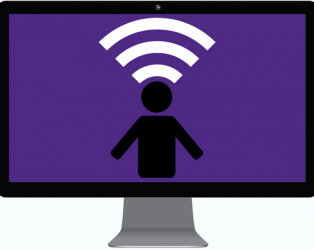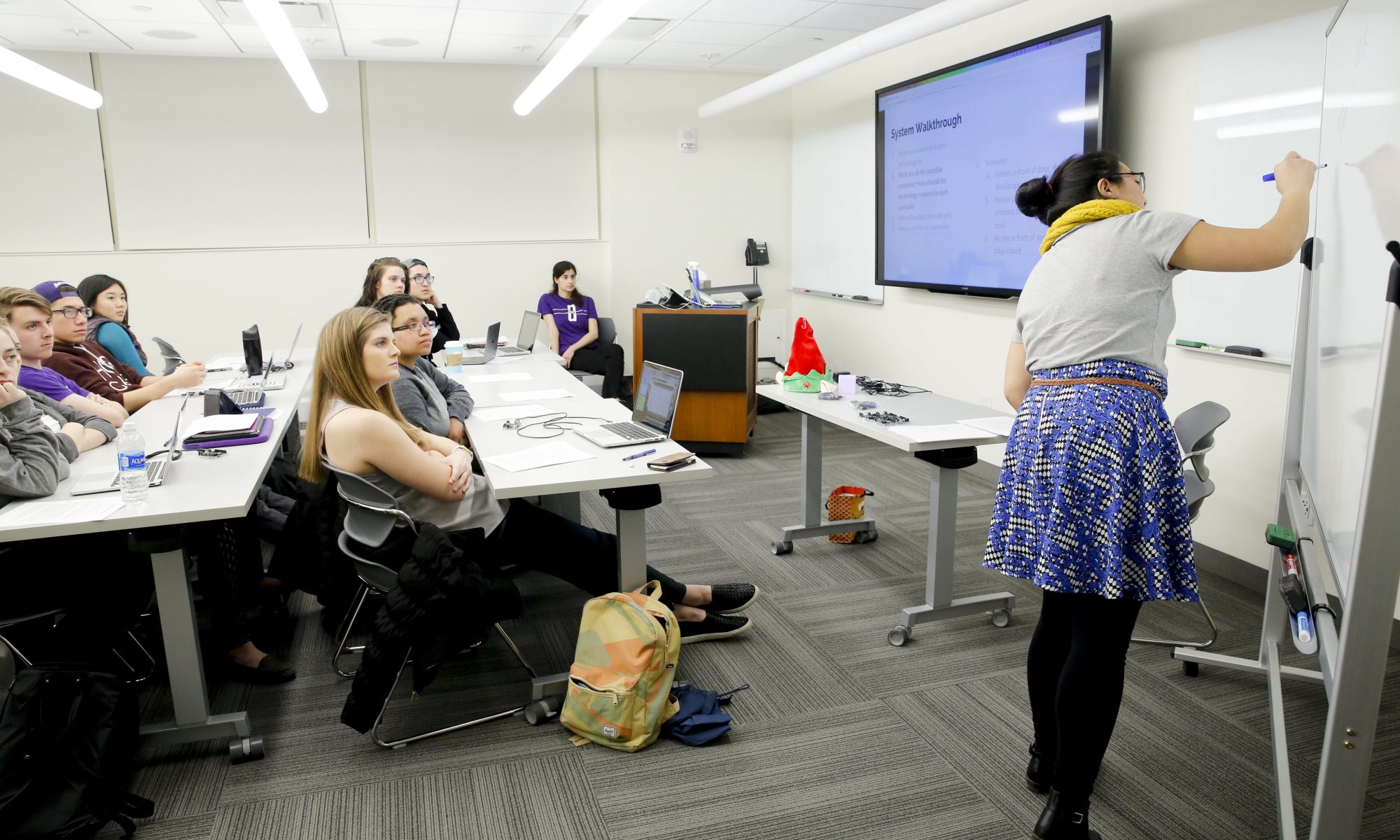Computing Everywhere has drawn on the expertise of many graduate students from multiple departments. Below is a list of many of our current and former instructors.
Current Instructors
Rawan Alharbi is a computer science Ph.D. student with a particular interest in human-centered machine learning approaches in behavioral preventive medicine. Her research focuses on uncovering methods of collecting wearable sensor data of human behavior in their natural habitat to build more valid and less bias machine learning models.
Scott Allen Cambo is a PhD candidate in the Technology and Social Behavior program studying human-centered machine learning. His doctoral thesis will study how AI for content moderation of online communities can be designed to better reflect the perspectives of the marginalized communities disproportionately affected by online harassment, hate speech, and cyber bullying.
Max Crouse is a computer science doctoral student that is working to design intelligent question-answering systems that can learn from extremely limited amounts of training data.
Mike DeVito is a doctoral student in the Media, Technology, and Society PhD program. His research focuses on user perceptions and informational effects of algorithmically-driven systems.
Jeremy Foote is a PhD candidate in the Media, Technology, and Society program. He studies how online projects start and how people make collective decisions online.
Diego Gómez-Zará is a Ph.D. candidate in the Technology and Social Behavior program studying social networks and team assembly. With his interdisciplinary colleagues in the SONIC Lab, he studies social media and team-assembly from a network perspective.
Jamie Gorson is a PhD candidate in Computer Science and Learning Sciences and has a B.S in Computer Engineering from Olin College of Engineering. She is interested in designing technology to enhance motivation in classrooms. Currently she’s researching how to enhance motivation in programming novices.
Nick Hagar is a PhD student in the Media, Technology, and Society program. He studies how technology shapes journalism and the media industry.
Mmachi G. Obiorah: I am a 4th year PhD student in Computer Science. I am currently thinking about how to design digital technologies that can improve the quality of communication of people with language disorders. In particular, I am researching how digital technologies can be used to initiate conversation, support text access and support specific language production for people with aphasia in novel contexts.
Irina Rabkina is a PhD student in Computer Science. Her research is at the intersection of cognitive science and artificial intelligence; she is interested in building systems that not only behave like humans, but do so in a cognitively plausible way.
Daniel Trielli is a PhD student at the Media, Technology and Society. He is researching computational journalism and how news reaches the public in our algorithmically-defined world.
Previous Instructors
Feel free to reference and contact previous instructors for additional Computing Everywhere context:
Elham Beheshti is a doctoral candidate in Computer Science. Her research focuses on the design and evaluation of interactive learning tools in informal learning environments. In particular, she is interested in designing interactive tabletop exhibits for use in science centers.
Robin Brewer graduated from the Technology and Social Behavior program. Her research focused on designing technologies to support online communication for older adults who have limited knowledge of or who do not have access to the Internet. Robin is currently moving into a postdoctoral presidential fellowship.
Mark Díaz is a PhD student in Technology and Social Behavior. He researches online communication and how marginalized populations experience and respond to discrimination.
Jes Feuston is a student in the Technology and Social Behavior program. Her research in human-computer interaction involves understanding the impact of social systems and technology on mental health.
Colin Fitzpatrick graduated from the Technology and Social Behavior PhD Program. His research focused on selective information disclosure among strangers online, and he has since started work at Facebook.
Matthew Heston is a PhD student in the Technology and Social Behavior PhD program. He researches how people communicate in online settings. He has developed web applications to understand how people collaborate and communicate online.
Amanda Lazar graduated from the Technology and Social Behavior program. She applies a critical perspective to the design of technology for health, focusing on older adults and people with cognitive impairment. Amanda is currently an Assistant Professor at the iSchool at the University of Maryland.
Jim Maddock is a PhD Student in the Technology and Social Behavior program. He studies collaboration, coordination, and information diffusion in online communities such as Wikipedia and Twitter.
Sneha Narayan is a PhD candidate in Technology and Social Behavior. Her research centers around understanding how newcomers are mobilized and socialized in online volunteer communities.
Emily Wang is a PhD student in Technology and Social Behavior. Her research in human-computer interaction and accessibility focuses on multimodal interfaces to support teams with individuals with disabilities.
Igor Zakhlebin is a PhD student in Technology and Social Behavior. He is interested in network science, natural language processing, and machine learning. He researches the interplay between human interactions and relationships over long periods of time.

